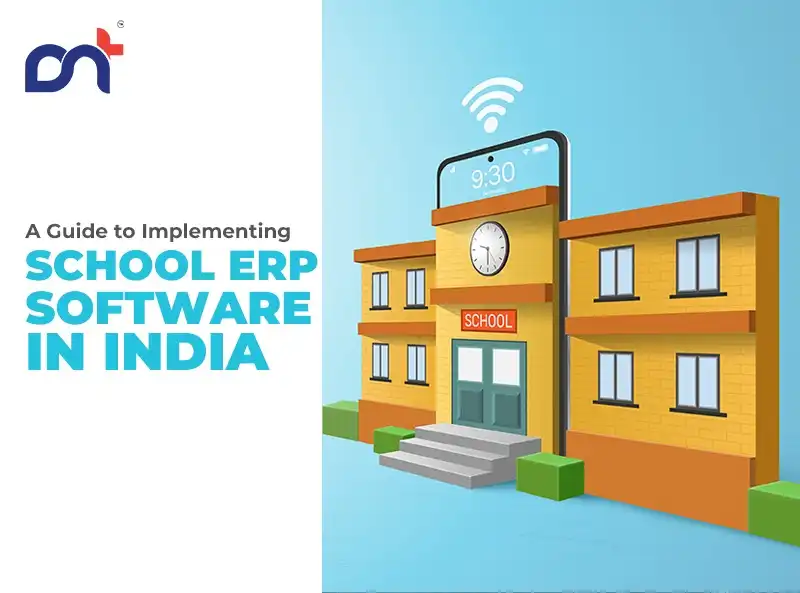


As Indian schools grow in size and complexity, the need for a streamlined and centralized management system is more important than ever. School ERP software India solutions are becoming the standard for educational institutions aiming to improve operational efficiency, transparency, and stakeholder engagement. This blog serves as a complete guide to understanding, selecting, and implementing a School ERP system tailored to Indian educational needs.
School ERP (Enterprise Resource Planning) software is a comprehensive platform that integrates all key functions of a school into one centralized system. It allows institutions to manage admissions, attendance, timetable, examinations, finance, communication, transportation, and more from a single interface. Designed to reduce manual tasks and improve decision-making, the system provides benefits to administrators, teachers, students, and parents alike.

The Indian education system is evolving, with increasing student numbers, curriculum upgrades, and demands for transparency and digitization. Traditional paper-based methods or standalone software tools can no longer handle this scale and complexity efficiently.
Here are key reasons Indian schools are adopting ERP software:
Simplified administrative processes
Centralized access to academic and administrative data
Enhanced communication with parents and staff
Real-time tracking of student progress and attendance
Efficient fee and financial management
Improved data security and compliance with educational standards
While various ERP solutions offer different modules, a reliable School ERP software in India should have the following features:
Online admission forms, application tracking, merit listing
Digital student records with personal, academic, and medical details
Manual or biometric attendance tracking for students and staff
Automated fee collection, reminders, reports, and integration with payment gateways
Exam scheduling, marks entry, report cards, and analysis
Automated and manual class schedule generation
Teacher profiles, payroll, leaves, and attendance
Updates on homework, attendance, notices, and fee payments
Route planning, vehicle tracking, and safety compliance
Book issuance, inventory tracking, and procurement
Implementing a School ERP system successfully involves careful planning, training, and integration. Below is a step-by-step guide schools in India can follow:
Start by identifying the institution’s specific needs. Engage administrators, teachers, and staff to gather inputs on daily challenges. Define clear objectives such as:
Reducing manual work
Improving parent communication
Automating fee management
Enhancing student performance tracking
Choose a vendor that has proven experience in offering School ERP software in India. Look for the following:
Customizable modules
Local support
Data security features
Scalability for future growth
Post-implementation training and support
Create an implementation roadmap with timelines, responsibilities, and milestones. Decide on whether the deployment will be on-premise or cloud-based. Ensure that the IT infrastructure supports the ERP solution.
Carefully plan the migration of data from existing systems or manual records. Validate data accuracy and maintain backups to prevent loss. Handle sensitive information with encryption and access control.
Training is critical for successful adoption. Provide hands-on training to:
Teachers (for marks entry, attendance)
Administrative staff (for admissions, finance)
Parents and students (for using the portal/mobile app)
Use tutorials, live demos, and help documents.
Start with a pilot phase, ideally with a few modules. Gather feedback, fix issues, and then roll out the full system. Monitor performance for a few weeks to ensure everything runs smoothly.
Some of the common challenges schools face include:
Resistance to change from staff
Inadequate training or support
Improper planning and scope creep
Compatibility issues with legacy systems
Poor internet infrastructure in rural areas
Addressing these challenges requires proactive communication, strong leadership, and choosing the right vendor.
Once implemented correctly, a School ERP system delivers measurable benefits:
Reduced paperwork and administrative burden
Better academic tracking and performance analytics
Timely communication with all stakeholders
Streamlined fee management and compliance
Data-driven decision making by school authorities
1.jpeg)
At Devant IT Solutions, we specialize in providing scalable and secure School ERP software India solutions tailored to the unique needs of schools, colleges, and academic groups across the country. Our team offers end-to-end ERP implementation, training, and technical support to ensure a smooth digital transformation for your institution.
A: It typically takes 4–8 weeks, depending on the size of the institution, number of modules, and data migration requirements.
A: No. Schools can start with essential modules like admissions, attendance, and fee management, then add others gradually.
A: Yes. ERP software can be customized for small to large institutions and scaled as the school grows.
A: Costs vary based on features, student strength, deployment type (cloud or on-premise), and support services. Devant offers cost-effective solutions.
A: Absolutely. Devant IT Solutions provides ongoing support, updates, and training to ensure smooth operations after implementation.
Implementing a School ERP system is a significant step towards digitizing and streamlining operations for Indian educational institutions. From choosing the right solution to training staff and ensuring long-term success, each stage of the process plays a vital role. With the right guidance and partner, such as Devant IT Solutions, schools can ensure a seamless ERP journey that transforms their management and enhances the learning experience. For a personalized demo or consultation, Contact Devant IT Solutions today.